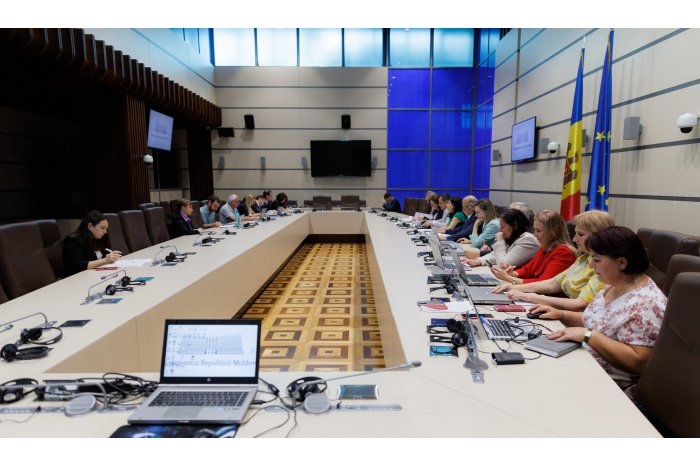New rules for organization and operation of Parliament
17:46 | 26.09.2023 Category: Political
Chisinau, 26 Sep. /MOLDPRES/- MPs will take an oath, as an element of legitimization of the actual start of the exercise of the mandate of deputy and their accountability to the people they represent. It is set out in the draft Code on organization and functioning of the Parliament, which was submitted to public consultations today on the platform of the legal committee on rules and immunities.
The draft Code concept was set up by members of the working group made up of representatives of all parliamentary factions and officials from the Parliament Secretariat.
The Code sees the constitution, organization and operation of the Parliament, the legal relations between the Parliament and other authorities, establishes the status of the deputy and the status of the Parliament Secretariat. A provision of the project refers to the rights of the parliamentary opposition, including the right of the opposition day, which will be organized twice in the session, upon preventive request at least ten days before.
The document also refers to the extraordinary procedures for examining draft normative acts - the priority procedure and the emergency procedure. The examination of the draft law as a matter of priority requires its examination within the procedural term, reduced by half. Draft normative acts which, at the request of the Government, are examined in the emergency procedure are presented, in the plenary of the Parliament, by the Prime Minister, and in his absence - by the Deputy Prime Minister.
The draft also sees the Parliament's relations with other public authorities, such as the President of the Republic of Moldova, the Government, the Constitutional Court, public authorities in the justice, local public administration authorities, as well as the cooperation between Parliament and civil society. The draft Code also establishes the types of parliamentary control. A new element is the specialized parliamentary control, which is carried out by the Parliament, through the Court of Accounts and the People's Advocate institution.
It is to be finalized, after the examination of the submitted proposals. Later, it will be registered in the Parliament and will enter the legislative procedure.
Photo: Parliament

